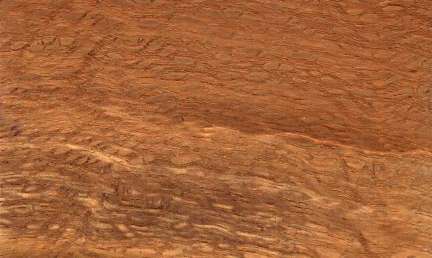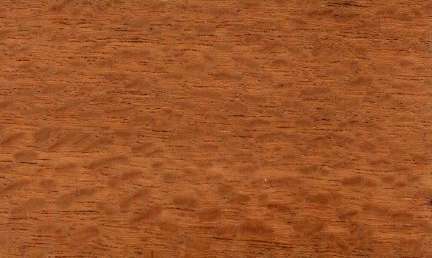  
Silky oak (Cardwellia sublimis)
Family: Proteaceae
Common names: Australian silky oak, Australian silky-oak, Bull oak, Gold spangled wood, Lacewood, Northern silky oak, Queensland silky oak, Selano, Silky oak
Distributed in: Australia, India, New Zealand (Oceania and S.E. Asia)
Distribution overview: Queensland, Australia, especially in the northern coastal areas.
Common uses: Balusters, Baskets, Bedroom suites, Boat building (general), Boxes and crates, Brush backs & handles, Building construction, Building materials, Cabinetmaking, Carvings, Casks, Chairs, Chests, Concealed parts (Furniture), Construction, Cooperages, Decorative veneer, Desks, Dining-room furniture, Domestic flooring, Dowell pins, Dowells, Drawer sides, Drum sticks, Excelsior, Figured veneer, Fine furniture, Fixtures, Floor lamps, Flooring, Flooring: industrial heavy traffic, Food containers, Furniture , Furniture components, Furniture squares or stock, Furniture, Hatracks, Heavy construction, Interior construction, Interior trim, Joinery, Kitchen cabinets, Light construction, Living-room suites, Millwork, Moldings, Musical instruments , Musical instruments, Paneling , Paneling, Parquet flooring, Plywood, Pulp/Paper products, Shingles, Tables, Toys, Turnery, Vats, Vehicle parts, Veneer: decorative
Product sources: Supplies are adequate for local consumption in Australia, but high shipping costs limit its availability on the U.S. and European markets. When available, they are often sold in 1 inch (2.54 cm) thicknesses by 14 feet (4 m) lengths at very high prices
Environment profile: Status unknown due to inadequate information
Tree size: Tree height is 20-30 m
Colors: the heart isRed, Reddish brownand the sapwoodWhite, White to yellow.The grain isStraight, the textureMedium coarse to coarseand the lusterPronounced
Natural durability: Susceptible to attack from termites (Isoptera), Susceptible to insect attack
Odor: No specific smell or taste
LightInduced Color Change: Darker
Kiln Schedules: UK=E US=T6D2/T3D1 Fr=5
Kiln Drying Rate: Rapid (<10 days for boards < 32 mm, to <30 days for boards >= 63 mm)
Drying Defects: Slight surface checking, Splitting
Ease of Drying: Variable results.
Tree Identification: Bole/stem form is straight
Comments: General finishing qualities are rated as satisfactory Silky oak has a striking figure, varying from a small lacelike pattern to a large splashlike figure. It is light and soft, yet firm, strong and tough. The timber is popular as a highly ornamental wood, and is used for furniture, paneling, and similar decorative uses.
Blunting Effect: Medium effect
Boring: Very good to excellent results
Cutting Resistance: Low resistance
Gluing: Satisfactory gluing properties
Mortising: Very Good to Excellent
Moulding: Fairly Easy to Very Easy
Movement in Service: Fairly Easy to Very Easy
Nailing: No pre-boring is required, Very Good to Excellent
Planing: Special attention required
Resistance to Abrasion: Highly resistant to wear
Resistance to Impregnation: Sapwood is permeable
Response to hand tools: Good response
Sanding: Good sanding qualities
Veneering qualities: Suitable for peeling, Suitable for slicing
Steam bending: Very good
Screwing: Good screw holding properties, Very Good to Excellent Results; Turning: Very good
Polishing: Satisfactory; Staining: Stains well;
- Numerical data Metric
- Numerical data English
- Strength properties
- References
 |
 |
 |
 |
| Item |
Green |
Dry |
Metric |
| Specific Gravity |
|
0,49 |
|
| Density |
|
560 |
kg/m3 |
| Bending Strength |
429 |
669 |
kg/cm2 |
| Crushing Strength |
219 |
399 |
kg/cm2 |
| Hardness |
|
|
kg |
| Impact Strength |
|
|
cm |
| Shearing Strength |
|
102 |
kg/cm2 |
| Stiffness |
78 |
90 |
1000 kg/cm2 |
| Tangential Shrinkage |
|
|
% |
| Radial Shrinkage |
3 |
|
% |
| Weight |
544 |
448 |
kg/m3 |
| Maximum Load |
|
|
cm-kg/cm3 |
| Toughness |
|
|
cm-kg |
| Static Bending |
|
|
kg/cm2 |
|
 |  |  |  | | Item | Green | Dry | English | | Bending Strength | 6110 | 9521 | psi | | Density | | 35 | lbs/ft3 | | Maximum Crushing Strength | 3126 | 5684 | psi | | Shearing Strength | | 1463 | psi | | Stiffness | 1122 | 1293 | 1000 psi | | Specific Gravity | | 0.49 | | | Weight | 34 | 28 | lbs/ft3 | | Radial Shrinkage | 3 | | % | | Tangential Shrinkage | 6 | | % | |
Shrinkage, Tangential = moderate
Shrinkage, Radial = very small
Shrinkage, Radial = small
Density (dry weight) = 38-45 lbs/cu. ft.
Density (dry weight) = 31-37 lbs/cu. ft.
Shrinkage, Tangential = very small
Shrinkage, Tangential = small
Weight = moderate
Shrinkage, Volumetric = fairly large
Shrinkage, Radial = moderate
Compression strength (parallel to grain) = medium
Bending strength (MOR) = medium
Bending strength of the species is considered medium, being much weaker than White oak or Teak in the air-dry condition (about 12 percent moisture content). Compression strength parallel to grain, or maximum crushing strength, is medium. It is lower in this property than Teak. The weight is moderate. The density is high.
Audas, J.W.,Native Trees of Australia,Whitcombe & Tombs PTY. LtdBoas, I.H.,1947,The Commercial Timbers of Australia - Their Properties and Uses,Council for Scientific and Industrial Research, MelbourneBolza, E.,1976,Timber and Health,Div. Building Res. C.S.I.R.O. AustraliaCause, M.L., Et al,1974,The Nomenclature, Density and Lyctus - Susceptibility of Queensland,Timbers,Queensland Forestry Department Pamphlet 13Cox, H.A.,1939,A Handbook of Empire Timbers,Forest Products Research Laboratory, Princes RisboroughFarmer, R.H.,1972,Handbook of Hardwoods,HMSOForest Products Newsletter,1946,The properties of Australian timbers - Northern silky oak,Australia C.S.I.R.O. Forest Products Newsletter,No.140Francis, W.D.,1951,Australian Rain-forest Trees,Commonwealth of Australia - Forestry and Timber BureauGay, F.J., Et al,1955,Standard laboratory colonies of termites for evaluating the resistance of,timber, timber preservatives and other materials to termite attack.,C.S.I.R.O., Australia Bulletin,No.277Harrar, E.S.,1942,Some Physical Properties of Modern Cabinet Woods 3. Directional and Volume,Shrinkage,Tropical Woods,9(71, pp26-32I.U.F.R.O.,1973,Veneer Species of the World,Assembled at F.P.L. Madison on behalf of I.U.F.R.O. Working Party on,Slicing and Veneer CuttingJackson, A. and D. Day.1991.Good Wood Handbook - The Woodworker's Guide to Identifying, Selecting and Using the Right Wood.Betterway Publications, Cincinnati, Ohio.Kaiser, J.Wood of the Month.Lacewood: A Common Name for an Uncommon Wood. Wood & Wood Products, April 1991, Pg. 58.Keating, W.G., Bolza, E.,1982,Characteristics properties and uses of timbers. South East Asia, Northern,Australia and the Pacific,C.S.I.R.O. Div. Chemical Technology,Inkata Press,1Kingston, R.S.T., Risdon, C.J.E.,1961,Shrinkage and Density of Australian and other South-West Pacific Woods,C.S.I.R.O. Division of Forest Products Technological Paper No.13Kline, M. 1979. Cardwellia sublimis - Lacewood. In A Guide to Useful Woods of the World. Flynn Jr., J.H., Editor. King Philip Publishing Co., Portland, Maine. 1994. Page 84-85.Kribs, D.A.,1950,Commercial and Foreign Woods on the American Market (a manual to their,structure, identification, uses and distribution,U.S.A. Penn. State College, Tropical Woods LaboratoryLincoln, W. A.1986.World Woods in Color.Linden Publishing Co., Inc., Fresno, California.Patterson, D.,1988,Commercial Timbers of the World, 5th Edition,Gower Technical PressRendle, B.J.,1969,World Timbers (3 Vols.,Ernest Benn Ltd. LondonStreets, R.J.,1962,Exotic Forest Trees in the British Commonwealth,Clarendon Press OxfordThe Australian Timber Journal & Building Products, Merchandiser,1969,Timber Durability and Preservation,Supplement to Australian Timber Journal 35(4) Tech. Timb. Guide No.8Timber Development Association Ltd.,1955,World Timbers (3 Vols.,Timber Development Association Ltd.
|










